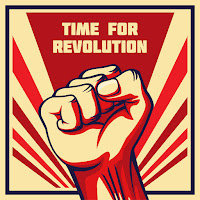In 2018 I will #TakeTheLeap by...
Dr Julie Bayley is a Health Psychologist at Coventry University and the Association of Research Managers and Administrators (ARMA) Impact Champion, winning that coveted award for excelling above all others in ‘supporting the translation of research into societal impact’. In this blog, Julie sets out her own impact resolutions for 2018 - and advises how you might 'take the leap' to enhance the impact of your research…
In 2018 I will #taketheleap by committing to support professional development of the impact community
What will be the main theme and discussion points when talking about ‘impact’ in 2018?
Impact discussions are at different stages around the world. For the UK and those involved in assessment, discussions are already narrowing towards impending submissions deadlines (eg. REF 2021). Efforts will focus increasingly on amplifying impacts and documenting them for stronger case studies. This both helps sharpen the detail of impact discussions, yet filters out discussions which don’t immediately support case study delivery. In contrast for those not as focused on assessment, and more internationally, impact discussions will widen. How can we think in broader terms about impact? How can we better support coproduction? How can we value smaller but meaningful effects?
By the end of 2018, what do you hope to have achieved in your position as Impact Champion?
Impact can be simply defined as ‘provable benefits of research in the real world’.
My main aim, in all my work, is to build understanding of this – or ‘impact literacy’ - into what we do within the sector. With assessment and funding as drivers it’s so easy to feel pressure to promise too much, focus on material gains and chase elusive but possibly unrealistic opportunities. Equally it’s easy to incorrectly fall back on simple, familiar metrics (eg. citations) to articulate the impact of our work. By the end of 2018 I hope to have brought impact literacy more fully into the arena, and improved people’s understanding of how research and the real world can meaningfully ‘connect’.
I also hope to have improved recognition of the wealth of expertise within the community of impact professionals (eg. those within the ARMA Impact Special Interest Group). I am extremely privileged in my role as ARMA Impact Champion to see the commitment, skills and knowledge of this community first hand. With ARMA, Emerald and others I will be working to strengthen professional development opportunities and broader understanding of their key roles.
What one thing should our communities be doing this year above everything else to make an impact?
The single biggest thing the research community can do to make an impact is to talk to non-academics. We can so easily get lost in the detail, and make assumptions about why our research is useful. Unless we talk to people however, we may completely miss the point! Check in with those who may read your work, be interested in the findings or (ideally) work with you to produce the research. You never know what pathways may open up.
What small steps can researchers or institutions take to start making an impact with their research?
Impact is a long, team game. Researchers and institutions need to think about impact from the start of the research process, and start with basic principles:
- Be clear that impact is about the real world. Academic influence (citations, invited talks etc) are all hugely valuable, but unless you can see a benefit beyond the academic walls, you’ve not yet got ‘impact’.
- Consider how your work already links to the real world. Does it link to a specific problem (e.g. social issues, business challenges, economic risks)? Is your work ‘ready’ for use in the outside world or do you need to somehow translate it (e.g. into different formats, be integrated into other pieces of work)? Who are you already connected with on the ‘outside’?
- Look at how you currently do things: How can you improve external links? Support your staff? Improve skills? Connect appropriate skills within your institution? Involve users? Resource impact?
These small steps of understanding then start you on your pathway to actually making an impact. Good luck!
We hope that Julie’s blog has inspired you to ‘take the leap’ to help ensure your research makes real world impact in 2018 and beyond. Keep an eye on our @EmeraldGlobal Twitter account in the coming days for polls asking how you’ll be taking that leap
Catch up on the latest from our Real World Impact campaign on our website!




Comments
Post a Comment